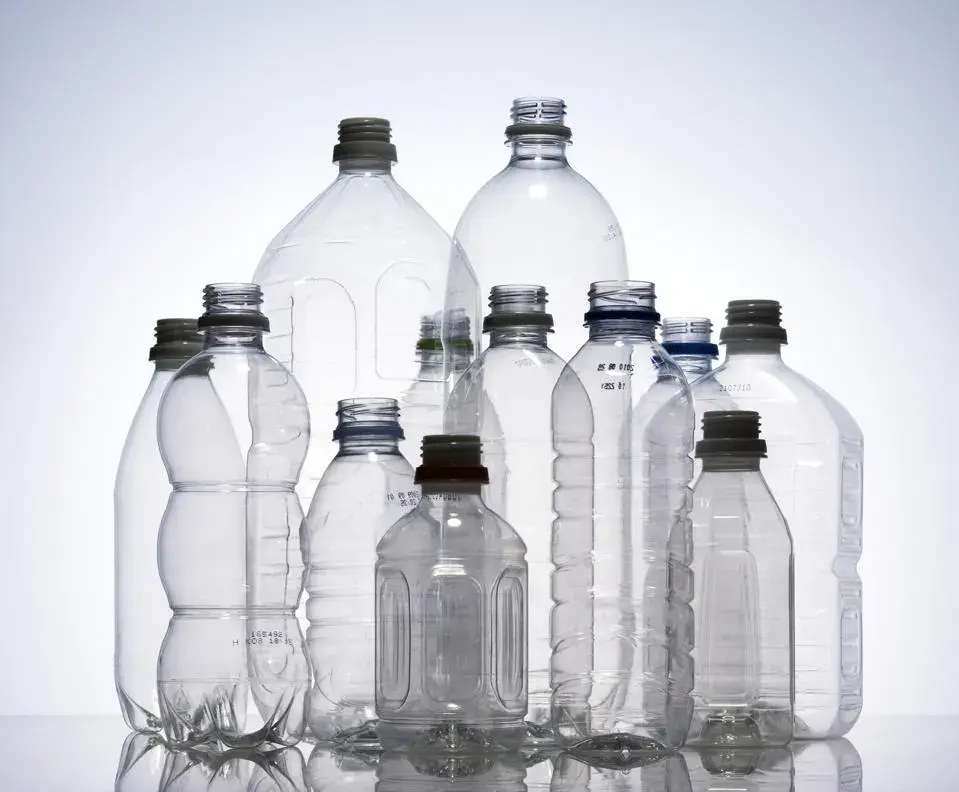This Global Plastic Packaging Producer Says Don’t Eliminate Plastic—Eliminate Plastic Waste
- jim213836
- Feb 17, 2024
- 4 min read
Companies that deal in plastic packaging have taken a beating in recent years from the environmental movement, as stories about everything from the Great Pacific Garbage Patch (which is a problem, but one not nearly so horrible as what’s been popularly reported) to endocrine disruptors (the same) to microplastics (the same) being used to attack the industry.
For Berry Global, Inc., one of the preeminent producers of plastic packaging in the world, though, the criticism is misplaced. “Plastic is not a problem,” said Tom Salmon, Chairman and CEO of Berry Global. “Plastic waste is an opportunity. It represents potential savings of energy, water, and CO2.”
He should know. Berry, headquartered in Evansville, Indiana, is a mainstay supplier to the CPG world. They have a huge presence in consumer packaging, as well as health, hygiene, and engineered material businesses. They have about 47,000 employees and close to 300 locations around the world. Berry is off to a roaring start for fiscal 2021, having reported first quarter results of over $3 billion in net sales, up over 11% on the previous year.
They’ve raised their guidance for all of fiscal 2021, increasing their expected EBITDA range by $25 million and raising their organic growth assumptions by 2%.
For Berry’s executive team, one core element in continuing to drive strong business results like those is sustainability, and specifically circularity. “That really is aligned with our growth objectives,” Salmon explained. “It’s definitely building energy with our customers. The largest brand owners in the world are looking to us as a resource. We have a history of design for circularity, and we also have access to critical materials for the net-zero economy.”
“We’re focused clearly on scaling up the circular economy,” added Jean-Marc Galvez, President of Consumer Packaging - International for Berry Global. “Most of our CPG customers have made commitments to their consumers to have 10% to 30% post-consumer resin (PCR) recycled content in their packaging by 2025.”
Toward that end, in 2019 Berry introduced their own sustainability strategy, Impact 2025. “We have very specific goals,” Salmon said. “We’re redesigning our packaging to be 100% reusable, recyclable, or compostable. We’ll have 10% recycled content. We’re already above 4%, so we’re ahead of schedule.” There are other goals with respect to greenhouse gases, water use, and resin loss, but perhaps the most notable is the aim to prevent loss of plastic into the environment.
That objective involves a number of different facets. “We need to stimulate circularity by working with brand owners, NGOs, end users and recyclers,” said Salmon. “We’ll demonstrate business models showing how recycling plastic waste can be monetized. We feel the number one thing we can do is create demand, which will then create innovation. We’re best-positioned for that.”
Berry has engaged in a variety of projects and initiatives large and small in support of their goals. Last year they entered into an agreement with Repsol, the Spanish multi-energy firm, for the supply of certified circular resins. In 2019 Berry acquired RPC/PLASgran, UK’s largest plastics recycling group. Since that acquisition the combined companies invested in a second PLASgran location in the UK, which will focus on the recovery of plastic waste for use in FDA-approved materials. Meanwhile, Superfos, another Berry Global company, has initiated a packaging lease model. “We’re running pilots in Germany,” explained Galvez. “The consumer returns a container, and we use it to create new containers that we send back to our customer. It’s another great example of local innovation.” That program offers benefits to Berry, its customers, and their consumers alike, with Berry retaining ownership of its high-quality PCR, and all stakeholders benefiting from the energy, water, and CO2 reductions.
Berry is also involved in machine and materials work as well. “We’ve entered into a partnership with the City of Evansville and State of Indiana to work on AI-enabled robotic sorting,” Galvez said. “That technology will allow us to separate waste streams with less labor. We’re also working on renewable, bio-based plastics as well. That’s driven by demand from our customers. We’re looking at producing plastics using bamboo or sugar cane.”
Berry is a founding member of the Alliance to End Plastic Waste. “Our ability to work across the whole value chain is essential,” Salmon said. “We can help turn additional tonnage into usable product. And then we can help translate solutions to other geographies. We’ll work with governments, NGOs, and companies to come up with viable businesses and additional investments.”
“I think our customers will be aligned with us that plastic has its place, but not in rivers or oceans,” added Galvez. “We need innovation, collaboration, and investments.”
Salmon agreed. “One component of the pandemic is that it reinforced with the public how plastic is part of the solution, and is helping to make lives better. It’s a component of the supply chain that’s essential. The answer to the waste problem is to stimulate circularity. Berry is trying to demonstrate that with global leadership. It’s an opportunity to act to solve the problem, and to lead to a net-zero economy. We see it as a growth opportunity.”










Comments